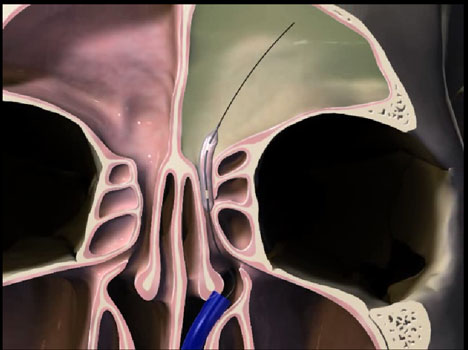Sinusitis is inflammation of sinuses. Mucus collects and blocks the sinus openings.
Symptoms are headache, facial pain,nasal discharge, nasal blockage and post nasal drip.
Aim of treatment is to open up blocked sinus passageways.

Balloon sinuplasty is true advance in the field of sinus care. It works on same concept as balloon angioplasty for the treatment of clogged coronary arteries.
A wire catheter (approved by FDA) is introduced through the nostril and moved towards blocked passageways. Catheter has a balloon in the front.Then balloon gradually inflated to open up blocked passageways, then it is deflated and removed. Sinus drainage is restored.
Balloon sinuplasty alone may eliminate the need for surgery in some patients and others may require concurrent endoscopic sinus surgery.
Balloon sinuplasty is safe, effective , minimally invasive, cost effective, takes less recovery time, has less patient discomfort, and has no side effects.
Studies confirm it's safety and efficacy and high patient satisfaction. But still it is under evaluation for long term success and further studies are needed to see it's effectiveness in presence of nasal polyp or when ethmoid sinus is involved.


